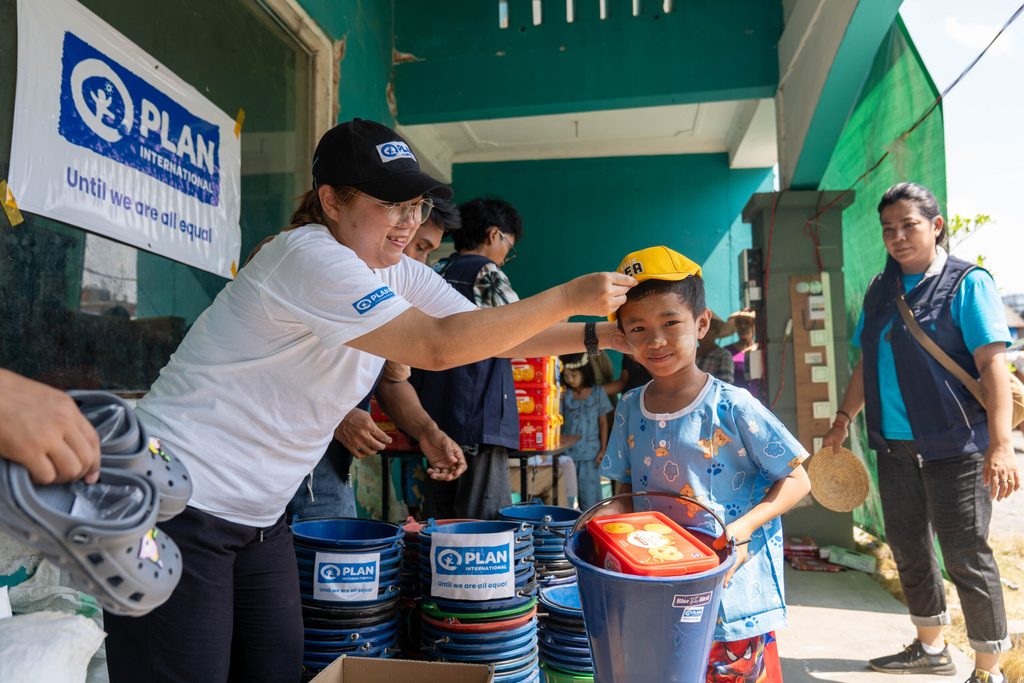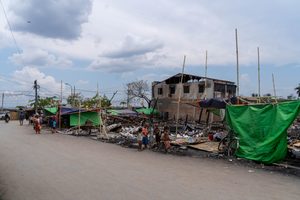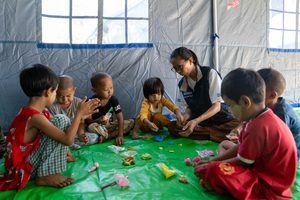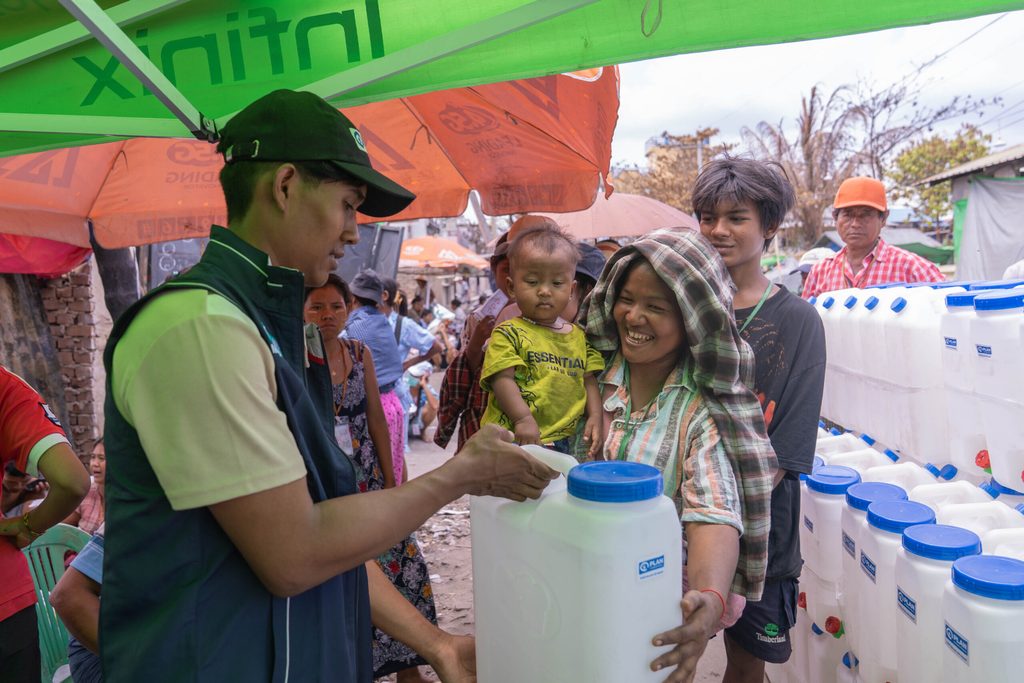Myanmar faces new challenges as monsoon season looms
28 April 2025One month after a 7.7 magnitude earthquake caused substantial destruction in central Myanmar, the scale of need remains staggering. With the monsoon season fast approaching, funding is urgently needed to prevent one disaster compounding another.

“The people of Myanmar have shown outstanding resilience. But recovery is a long road. We must act now – before the rains intensify, before schools reopen, before further hazards deepen the current humanitarian crisis,” says Haider Yaqub, Plan International’s Country Director in Myanmar.

The initial earthquake, which struck on 28 March, resulted in 3,800 confirmed deaths and left over 5,100 people injured, with 116 people still missing. The earthquake was followed by strong aftershocks and early rains, displacing more than 200,000 people and damaging more than 2,600 schools and 52,000 homes.
Delivering much-needed aid is challenging due to the collapsed infrastructure, but communities are doing what they can to rebuild their lives from the ground up.
To date, Plan International has reached over 22,600 people with food, clean water, blankets, hygiene kits and mobile toilets, working with trusted local partners, but more safe temporary shelter is urgently needed, especially before the monsoon rains arrive.
Families are sheltering in unsafe, partially collapsed buildings as evacuation centres impose curfews and restrict movement, preventing people from working or protecting what little they have left.
For many, staying is unsafe – but leaving is simply not an option. “People have lost everything,” says Su Mon Htay, Director of People and Culture & Administration at Plan International Myanmar. “Not only their homes, but also their hopes and dreams.”
Children at the heart of the crisis
Children are among the hardest hit. Living in an unstable environment, coping with intense heat, disrupted routines and constant aftershocks, their emotional distress is clear. “My 8-year-old son cries all the time,” says Hein. “He keeps asking, ‘Dad, is it another earthquake?'”

To support children, Plan International has set up 20 child-friendly spaces with local partners such as the Young Men’s Christian Association and the Building Back Better Society. These spaces provide a safe place for children to play, socialise with their peers and receive psychosocial support – helping them to process trauma and regain a sense of normalcy.
Serious protection concerns remain, as the lack of safe toilets and washing facilities in many displacement sites puts girls and young women at increased risk. A recently reported case of sexual abuse in an evacuation site has highlighted the urgent need for strengthened child protection and gender-responsive services.
“As Myanmar enters the early recovery phase of this disaster, we fear the situation will deteriorate further with the expected arrival of the monsoon season,” says Haider Yaqub. “We must act now – before the rains intensify, before schools reopen, before further hazards deepen the current humanitarian crisis.”
“We are committed to working where we can add the most value – particularly in the areas of child protection, education in emergencies and early childhood development. We are supporting children and their families as they try to rebuild their lives, but it is also important to integrate disaster risk awareness and preparedness, especially among children, into all recovery activities so that people know how to stay safe if another disaster strikes.”
“We must act now – before the rains intensify, before schools reopen, before further hazards deepen the current humanitarian crisis.”
Haider Yaqub, Plan International’s Country Director in Myanmar
Scaling up the response amid urgent needs
Community members have clearly identified their top priorities: rebuilding homes, getting children back to school, and restoring livelihoods. These are the 3 pillars of recovery – and they need to be addressed immediately.
“I want my house back,” says Thidar (not her real name), a 25-year-old mother. “Not a big one, but just a house where my family members and I can live together in peace.”
With schools due to reopen on 1 June, the race is on to restore learning for thousands of children. Many schools remain damaged or destroyed, making temporary learning spaces essential to avoid disruptions in education.
While the extension of the ceasefire until 30 April is a welcome development, time is running out – and so is funding. Plan International is currently facing a funding gap of €4.47 million, with around a third of the required funds secured to date.
This is a critical moment for Myanmar. More than 41 million people have been affected by the earthquake, with 1 in 4 considered particularly vulnerable. This includes 4.8 million women and girls, who remain at increased risk due to the lack of essential gender-responsive services – from menstrual hygiene and mental health care to protection from violence. Plan International urges the international community not to look away.

Categories: Emergencies

